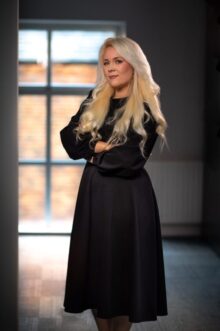Are you feeling like you are on a constant contact rollercoaster, trying to agree arrangements with the other parent or carer, and knots of worry tangle you up each week? Here, Nicola Bradley breaks down the process of applying for a Child Arrangements Order and what a successful application can mean for those struggling with contact.
Does the following apply to you? Are you asking yourself if you will get to see your child? Perhaps your message is going to be left on “read” with no response. Are you always getting messages late so that last minute plans have to be made, or feeling like you are an on call babysitter and there is no structure in place. Maybe you have attended or proposed mediation, as well as other forms of Alternative Dispute Resolution (ADR) but this has not been successful.
What can you do in this situation? It might feel like whatever you have tried before has only been met with more complications when trying to organise contact. But when you have tried everything else and nothing has worked, there may only be one option left; Court.
Should I apply to the Court?
It is common for parents to start giving themselves a hard time when court feels like your only option. But it is important to remember that being a parent or carer, although a great privilege, is incredibly challenging, and court intervention can sometimes be required to allow for a firm arrangement to be put into place. Most people see court as a last resort, but it is a real option in resolving contact issues, putting the welfare of the child at the forefront and making sure that the right outcome is found.
So what happens next?
An application for a Child Arrangements Order (CAO) is made by completing the court’s C100 form. A CAO can define who the children live with; who the children spend time with, including how often and whether that contact is supervised or not; and any indirect contact such as letters or facetime calls, including their frequency.
You can also use the C100 to apply for a Specific Issue Order (SIO) if you would like the court to decide on a particular issue, such as where the child should go to school or what surname they should have. It is also used to apply for Prohibited Steps Orders (PSO) which prevent the other parent from performing a certain action, such as removing the child from the jurisdiction.
Again, the welfare of the child is paramount concern for the court and the court has to have regard to the Welfare Checklist contained in s1(3) Children Act 1989.
the Children and Family Court Advisory and Support Service (“Cafcass”) may also be involved in your case. Cafcass are an independent body appointed by the court to make recommendations based on what is safe and, in the best interest of the child(ren). After an application is issued, Cafcass will usually speak to the parties involved and prepare an initial safeguarding letter in advance of the First Hearing Dispute Resolution Appointment (FHDRA).
In some cases, particularly where the issues are narrow, it is possible that matters could be resolved at the FHDRA. More often, the court will use the FHDRA as an opportunity to listen to the parties’ positions and make directions for further evidence to be obtained, and/or for Cafcass to conduct a more detailed safeguarding analysis known as a Section 7 Report, in advance of a Dispute Resolution Appointment (DRA).
The court typically lists DRAs for 60-90 minutes to try to enable agreement/a final order, if possible. If not, the matter will be listed for a contested final hearing before the court can determine the final child arrangements.
Whether or not the matter proceeds through to a final hearing, the court process is not a short one and generally takes between 6-12 months to complete, sometimes longer depending on the complexity of the case.
If you are experiencing difficulties agreeing arrangements for your children, please contact us as soon as possible. Our experienced family law solicitors will help you in trying to achieve the best possible outcome.
